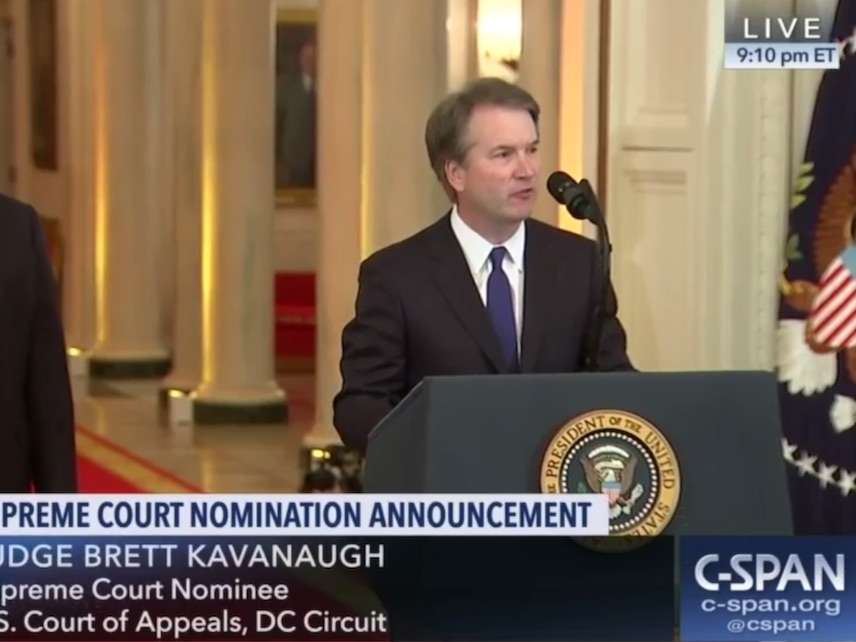SCOTUS Nominee Brett Kavanaugh on the Fourth Amendment and Warrantless Bulk Data Collection
Where does Judge Kavanaugh stand on the Fourth Amendment?

The Fourth Amendment was added to the U.S. Constitution to protect Americans from facing unreasonable searches and seizures by the government. Yet according to Judge Brett Kavanaugh, Donald Trump's nominee to replace Justice Anthony Kennedy on the U.S. Supreme Court, the Fourth Amendment suffers no violation when the federal government engages in the wholesale warrantless collection of every Americans' telephone record metadata.
Kavanaugh expressed that view in the course of a 2015 statement concurring in the denial of rehearing en banc in Klayman v. Obama, which was then before the U.S. Court of Appeals for the District of Columbia Circuit. The case centered on the constitutionality of the National Security Agency's controversial information-gathering program, which involved the NSA collecting the telephony metadata of all Americans. "In my view," Kavanaugh wrote, "the Government's metadata collection program is entirely consistent with the Fourth Amendment."
Kavanugh offered two principal explanations for why he considered the program to be constitutional. First, he invoked what's known as the "third-party doctrine," which says that if you voluntarily share private information with a third party, you no longer have a reasonable expectation of privacy in that information. "The Government's collection of telephony metadata from a third party such as a telecommunications service provider is not considered a search under the Fourth Amendment," Kavanaugh wrote.
But "even if the bulk collection of telephony metadata constitutes a search," Kavanaugh continued, turning to his second justification, the program may still be approved because the Fourth Amendment "bars only unreasonable searches and seizures. And the Government's metadata collection program," he wrote, "readily counts as reasonable" because it "serves a critically important special need—preventing terrorist attacks on the United States." He added: "In my view, that critical national security need outweighs the impact on privacy occasioned by this program."
My colleague Jacob Sullum recently observed that while Kavanaugh has been "receptive to cases that challenge gun control laws on Second Amendment grounds," he "seems to take a narrower view of the Fourth Amendment." Kavanaugh's endorsement of warrantless bulk data collection by the U.S. government would seem to reinforce that observation.
The future of the Fourth Amendment is one of the most pressing issues facing the Supreme Court. As the members of the Senate Judiciary Committee prepare for Brett Kavanaugh's confirmation hearings in the coming months, I encourage them to devote real attention to his possible shortcomings on the Fourth Amendment front.


Show Comments (90)